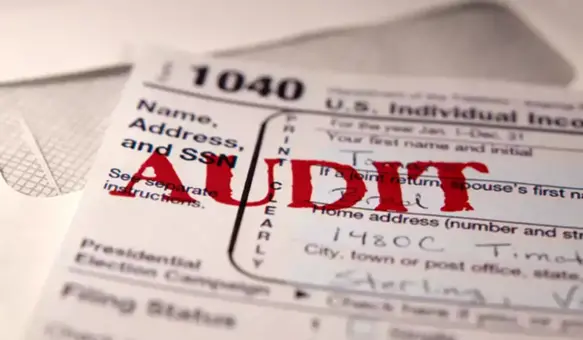Form 3520: Guide on reporting foreign trusts, inheritances, and gifts for US expats

Living abroad does not exempt US citizens from IRS reporting obligations involving foreign trusts and large foreign gifts. Form 3520 outlines what expats need to disclose and by what due date to avoid harsh penalties.
This guide by Taxes for Expats is designed to help US taxpayers understand what’s required and stay fully compliant. Learn more about our services or contact us for Form 3520 filings.
What is IRS Form 3520
Form 3520 is an IRS information return that tells the government about certain money, property, and trust-related activity that crosses US borders. The IRS uses it to track non-US transfers, confirm ownership interests, and close reporting gaps that often appear when assets move internationally.
This filing most often comes into play in everyday expat situations that do not feel unusual at the time but still trigger a reporting duty:
- Receiving a foreign gift that pushes total annual gifts from non-US individuals or estates above $100,000.
- Taking ownership of an inheritance from outside the US, even when no US income tax is owed on the transfer itself.
- Transferring assets to, owning part of, or benefiting from a foreign trust, including indirect benefits such as trust-paid personal expenses.
Because Form 3520 is frequently confused with a similarly named Form 3520-A, it helps to see how the two filings differ at a glance:
| Topic | Form 3520 | Form 3520-A |
|---|---|---|
| Primary filer | US individual or estate executor | The foreign trust, signed by the trustee |
| Main purpose | Reports trust transactions, ownership, and certain large cross-border transfers | Provides annual trust information and required statements |
| Typical trigger | Transfers, distributions, or reportable receipts from a foreign person of up to $100K | Ongoing US ownership of a foreign trust under IRC 671 – 679 |
| Timing focus | Based on the taxpayer’s filing calendar (4th month after year-end, with expat timing rules) and applicable due date rules | Based on the trust’s tax year (3rd month after the trust year-end, with its own extension form) and its own deadline |
| Penalties | Starts at $10,000 – up to 35% of unreported transfers or 25% of unreported gifts. | $10,000 or 5% of trust assets attributable to a US owner. |
This distinction matters because missing either form can carry steep penalties, even when the underlying transaction is not taxable.
Who must file Form 3520
Picture a US teacher living in Spain who receives help from family back home, inherits property overseas, and is also connected to a family structure abroad – all in one year.
For the 2026 filing season, the IRS pays close attention when money or assets cross borders, especially when a foreign gift goes over $100,000 from nonresident individuals or estates, or $20,116 from foreign companies or partnerships for the 2025 tax year.
-
You own a trust under US tax rules.
Ownership can apply under the grantor trust rules in IRC §§ 671–679. Even limited control or influence can be enough for the IRS to treat you as the owner of a foreign trust, which brings a reporting duty. -
You transfer assets to a foreign trust.
Moving cash, real estate, or other property into a trust outside the US is a reportable event. These transfers are tracked through Form 3520 so the IRS can see how assets move across borders. -
You receive a distribution from a trust.
A distribution is not just cash. Living in a trust-owned home rent-free or receiving an interest-free loan can count. When this is not reported, penalties can start at the greater of $10,000 or 35% of the gross distribution value. -
You are the responsible party for a reportable event.
Setting up a non-US trust, changing ownership, or making major structural changes may place the reporting obligation on you. Reporting can also apply when funds or property are received from a foreign person, even when no US tax is owed, and the amount relates to an inheritance.
NOTE! Some US expats may not need to file when certain foreign retirement or non-retirement savings plans qualify for relief under Rev. Proc. 2020-17.
The Form 3520 instructions also highlight special treatment for Canadian RRSPs and RRIFs under Rev. Proc. 2014-55, and some UK pension arrangements may fall under similar rules when all conditions are met.
Key components of Form 3520 (part by part)
Each part of Form 3520 lines up with a specific type of cross-border event, which helps the IRS see how money, property, or control moves between a US person and a foreign trust or donor. Courts have backed this structure, and cases like Huang v. United States show that putting information in the wrong part can still lead to penalties, even when the facts appear elsewhere.
Part I – transfers to foreign trusts
This part applies when a US person moves assets into a foreign trust, including transactions that are structured as loans or obligations. The IRS treats these transfers as high-risk and expects clear disclosure.
- Cash or property transferred to a foreign trust during the year
- Loans, notes, or obligations involving a foreign trust
- Trustee and beneficiary details tied to the transfer
Missing this report can trigger a penalty equal to the greater of $10,000 or 35% of the value transferred.
Part II – US ownership of foreign trusts
Form 3520 Part II covers situations where a US person is treated as the owner of a foreign trust under the grantor trust rules, even when no money was paid out during the year. Ownership alone creates a filing duty, and the due date follows the standard Form 3520 schedule, with June 15 often applying to expats and October 15 as the final extension date.
When a trust fails to file Form 3520-A, the US owner may need to submit a substitute filing to limit the 5% penalty tied to missing owner-level reporting.
Part III – foreign trust distributions
This section captures any value a foreign trust provides during the year, whether paid directly or received indirectly. The IRS looks beyond cash and focuses on real economic benefit.
- Cash or property distributions from a foreign trust
- Trust-paid personal expenses or credit card charges
- Rent-free use of trust-owned property or certain loans: When a reportable benefit is not disclosed, the penalty is generally the greater of $10,000 or 35% of the gross distribution.
Part IV – large foreign gifts received
Inheritance reporting often shows up in Part IV when a US person receives large gifts or bequests from foreign individuals or estates. The Form 3520 instructions explain that once total gifts exceed $100,000, each gift over $5,000 must be listed separately, even though the amounts are not taxed.
For 2025, gifts from foreign corporations or partnerships trigger reporting once they exceed $20,116, and late filing can lead to a 5% per month penalty, capped at 25% of the unreported amount.
Form 3520 preview
When and where to file Form 3520
For US expats, knowing when this filing is due and where it must be sent helps avoid common mistakes and keeps the process straightforward.
-
Filing deadline (same as Form 1040 unless extended):
The due date is usually April 15, 2026 for the 2025 tax year. Living abroad gives extra time until June 15, 2026, as long as a short statement is included with the filing. An extension can move the deadline to October 15, 2026, but unlike an income tax return, Form 3520 cannot go past that date under any circumstance. -
Physical mailing address (IRS location):
The Form 3520 instructions require this form to be mailed to the IRS at: Internal Revenue Service Center, P.O. Box 409101, Ogden, UT 84409. -
Electronic filing? Not allowed:
This tax Form 3520 cannot be filed online or through e-file systems. The IRS accepts it only as a paper filing sent by mail.
NOTE! Late filing penalties
- Penalties can begin at $10,000 and may be higher in certain cases, such as 35% of the value of unreported foreign trust transfers or distributions, or 5% tied to trust ownership reporting failures.
- After an IRS notice, additional penalties of $10,000 can apply for every 30-day period the form remains unfiled, which means even missing a required inheritance report can quickly become costly.

Consequences of non-compliance
Missing Form 3520, filing it late, or reporting it incorrectly can draw IRS attention and raise the chance of an audit. In more serious cases, especially when foreign trusts or distributions are involved, penalties can add up over several years, and the IRS may ask for more financial records.
Even when no tax is owed, non-compliance can slow down your return, trigger reviews of foreign assets, and make future filings under programs like the Streamlined Filing Compliance Procedures more difficult.
Get expert assistance with your Form 3520 filing
Dealing with money from outside the US can feel normal, but Form 3520 is one of those filings where small details matter more than people expect.
For 2026 filings tied to 2025 activity, the IRS focuses heavily on how foreign gifts, inheritances, and trust relationships are described and documented, not just whether tax is owed.
Our specialists at Taxes for Expats step in to make sense of the rules, handle the reporting carefully, and help you stay compliant without the process taking over your life.

FAQ
Yes – reporting is required when total gifts from foreign parents (as foreign individuals) exceed $100,000 for the year.
Form 3520 is filed by the US person, while Form 3520-A is the foreign trust’s annual return when there is a US owner.
Late or incomplete filing can trigger penalties, including foreign gift penalties of 5% per month up to 25%.
Yes – you can file an amended Form 3520 by checking the “Amended return” box and submitting the corrected form to the IRS.

Stay IRS-compliant with your business abroad – we’re ready to help


